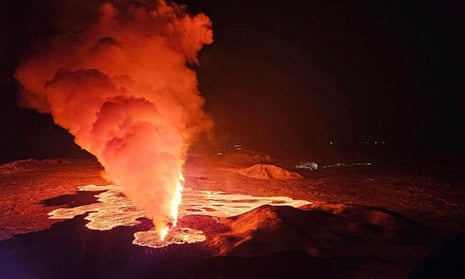This week, Iceland woke up to yet another day of fire, as towering fountains of lava lit up the dark morning sky.
This time the evacuated town of Grindavik was spared, but the molten rock still wrought havoc - engulfing a pipe that provides heat and hot water to thousands living in the area and cutting off a road to the Blue Lagoon tourist attraction.
It is the third short-lived eruption on the Reykjanes peninsula since December 2023 and the sixth since 2021. But scientists think this is just the start of a period of volcanic activity that could last for decades or even centuries.
Iceland is no stranger to volcanoes - it is one of the most volcanically active places in the world.
That is because the country is positioned above a geological hotspot, where plumes of hot material deep within the Earth rise towards the surface.
But Iceland also sits on the boundary between the Eurasian and North America tectonic plates. These plates are very slowly pulling apart from each other, creating a space for hot molten rock - or magma - to flow up.
As the magma builds up underground, the pressure increases until it breaks through the surface in an eruption (at this point the hot rock is called lava).
There are more than 100 volcanoes across Iceland and more than 30 are currently active.
More about:
















































